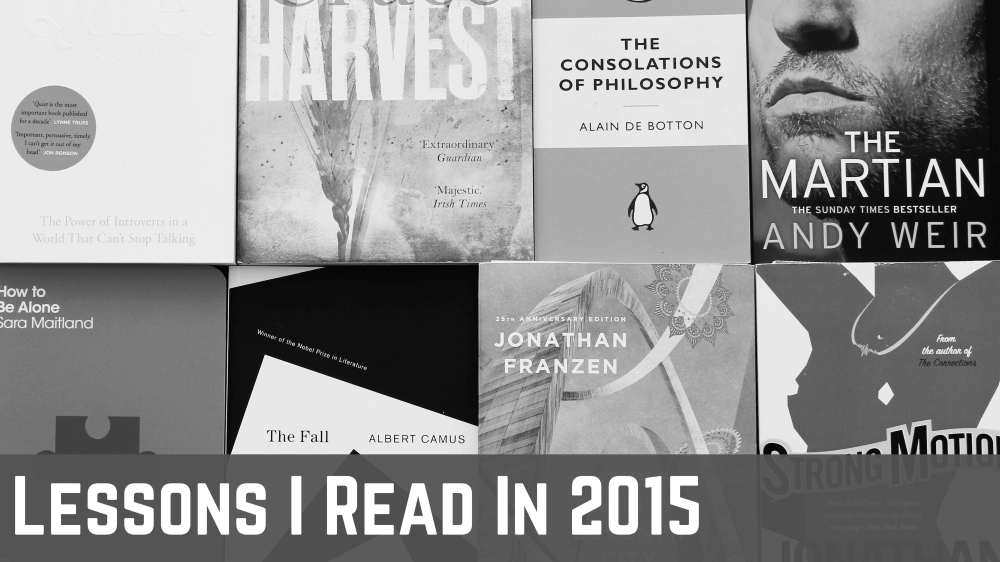Do you want to be taken seriously? I would have a difficult time imagining that you don’t.
The desire to be taken seriously is the fuel that powers strange personality traits that you’ve likely observed in yourself and others, including:
- Your Facebook friends who meticulously curate their online presence in an effort to appear as if they have their shit together. Pay no attention to that man behind the curtain, Dorothy.
- People who are “busy”. They’ve just had a lot on, you know? Things are crazy with the kids and there’s this huge project at work that only they can do properly so there go their weekends! Last seen opening a second bottle of white wine at 7:00 on a Monday night because “cheat day!”.
- “Fanboys” who surrender a not insignificant portion of their identity to interests they can not directly participate in or outcomes they can not meaningfully impact. Depending on the selected devotion, this can assume the shape of either hipster escapism or – more typically – living vicariously through the success of others (see: devout fans of sports teams, athletes, bands, artists, etc.).
- This phenomenon can also be observed in:
- Those who dedicate themselves fully to a job they don’t believe in.
- Those dedicated to being a “present” parent to the point of having no individual identity outside of this pursuit. When asked how they are, these parents will tell you how their kids are doing.
- This phenomenon can also be observed in:
It would be unfairly reductive to say that the desire to be taken seriously is the sole cause of these and other, similar behaviors. That’s not the point I wish to make. Rather, I would like us to turn the mirror back onto ourselves. How seriously would you (or do you) take people who fall into one of the categories listed above?
None of us is more important than anybody else. This isn’t a revolutionary idea. It’s safe to say that a large majority of the human race believe this to be true on at least a philosophical level. Not many people would claim to be superior to others; above the fray. To believe that you are better than anybody else – that there is anybody “not worth your time” – is a particularly off-putting brand of solipsism.
That said, observed human behavior (which may include your own) would seem to suggest that such espoused beliefs may be merely rhetoric. If none of us thinks that we’re better than anybody else, why are we routinely jerks to one another?
The problem is introduced when we must adhere to this philosophy in real life.
Talking about being fair is easy. Meanwhile, doing? Well, don’t we all have enough to do already?
What does this kind of behavior look like?
- Any number of aggressive traffic maneuvers. Nobody needs to get to their destination as urgently as you!
- Elbowing in front of kids on train station escalators. Kids aren’t really people, right? Where do they have to be that’s so important? They have their whole lives to get to the top of the escalator!
- Spilling some coffee on the counter of the office canteen but leaving it for somebody else to clean up. That’s what interns are for, right? You? You’re late for a meeting!
You get the idea.
In all of these instances, the “bully” (let’s just call the behavior what it is, even if I’m stretching the definition past the inherent intentionality) considers nobody but themselves. Are they doing this to be a dick? Hopefully not. Most times, they’re probably perfectly nice people. So how does this happen? Where do nice people go wrong?
Inside their minds – unseen to all, including (usually) themselves – a complicated calculus is determining their actions. This calculus can be conceptualized as a flow chart of sorts; the reduction of complex social and natural scenarios to a ruthlessly efficient series of tripwires and routinized responses.
The result? They elbow in front of kids on the escalator not because they closely examined the children and considered their adolescent circumstances to be of only marginal importance when contrasted against those of the adults about, but because they didn’t think about the kids at all.
They thought only of themselves.
This type of behavior is indicative of a profound lack of regard for the needs of anybody but the self. We can look each other in the eye and claim to be selfless and socially responsible citizens who have time for everybody because that internal calculus – that ruthless flowchart – that controls our actions like a fanboy controls Lara Croft allows us to effortlessly maintain sufficient cognitive distance between effect and cause. We behave like jerks and let ourselves off the hook because, well, we didn’t mean to hurt anybody.
This is where the allegedly universal philosophy – believe it as we may – falls over entirely.
Being passively rude to strangers is bad enough but it is merely a symptom and not the disease (depending on the circumstances). The problem truly becomes a tragedy when we allow it to creep into our interpersonal relationships.
Over the last ten years I directly managed somewhere in the neighborhood of a thousand staff, almost all of them younger than me and still pursuing undergraduate degrees or – more generally and with mixed results – “being twenty something”.
I had hundreds of encounters with these staff members while they were under my management, but one sticks out in my mind. This staff member found me after her shift one day and presented me with a gift. It was nothing fancy but it was very thoughtful (when selecting the gift, she had recalled a funny moment we had shared at work) and completely unexpected.
What had I done for her that she felt warranted this gift? I had seen that she was having a bad day and I asked her if she was okay.
No other staff member ever presented me with a gift, and I did my part to assist as many as I could. I had helped many with interpersonal problems they were facing, wrote letters of recommendations that helped some earn better jobs or places in their university, and just generally made myself available to them.
Sincere thanks was always offered for my assistance to those ends but the person who went beyond a mere “thank you” did so because I had done something she truly valued: I had taken her seriously. As repayment, she took me seriously.
Of those hundreds of staff interactions, this is the one that I still remember; that I still take seriously.
More recently I’ve begun tutoring at the University of Technology Sydney and in two years have directly worked with about 500 undergraduate and graduate students, the vast majority of whom are in their first year of study at their respective level.
At the end of each semester, these students are invited to complete anonymous student feedback surveys in order to help us improve the class for future students. One open-ended question on this survey asks what elements of our tutorials they particularly enjoyed or found useful. Many use this opportunity to explicitly acknowledge my acknowledgment of them. They go out of their way to thank me for taking them seriously.
The things I’ve done that they thank me for? Responding to emails, providing assistance ahead of assignment submissions, not playing favorites, and offering useful and constructive feedback on assignments. If you’re thinking that this list sounds like all the things that any teacher should be doing, I would agree with you.
Don’t mistake this anecdote for a low key explainabrag. The entire point is that I’ve merely taken my students seriously and they’ve responded in a way that suggests this type of behavior is not something they regularly encounter. Those of us who are willing to recall our undergraduate years honestly will probably sympathize with their situation, and it’s (sadly) telling that this feedback is only offered anonymously. Clearly there is some level of shame associated with feeling like we’re not consistently being taken seriously.
The way to undo this – to move toward a more respectful society that makes progress because of and not despite the presence of others – is to embrace self-awareness rather than self-absorption.
One of the most difficult obstacles to achieving this is – as I already mentioned – time. By and large we are busy people these days. To stop and give everybody our undivided attention and selfless devotion is not practical. Fortunately, it’s also not necessary.
To be merely aware as you move about the world would be to go a long way toward taking others seriously. To not elbow in on escalators. Not because you take the time to critically analyse the needs of the people whom you would be cutting off, but because you’re operating on the assumption that your needs are no more important than anybody else’s.
Herein lies the simple, overarching truth behind all of this: taking others seriously is not an active task that consumes time and energy. It’s actually as passive as not considering them at all. The difference is a fundamental shift in the baseline of your own awareness: to not rush, to not be aggressive, to not assume that your needs are more important; that you are more important.
If I took the time to actively integrate myself into the lives of my students, there would not be enough hours in the day. Further to that logistical obstacle, my introversion would cause me to collapse in a heap even as I explained how to construct a rigorous thesis for an academic essay.
To take others seriously is not to insert yourself – it’s to leave the door open. Of the 35-40 students I have in any one class, only two or three will ever take me up on my offers of extensive assistance. Maybe ten will email me at least once – usually about a question relating to attendance.
If I didn’t take them seriously? If I operated on the assumption that their undergraduate needs were inferior to my postgraduate needs and thus only relevant within the 80 minutes I’m paid to stand before them in a classroom? It would be no different to elbowing in front of them on an escalator. I wouldn’t have seen them in either scenario. I wouldn’t have taken them seriously.
Instead, I make the choice that you should also make: I take them seriously. I offer them the world and a few approach me to claim it. They respond to my taking them seriously and they take me seriously in kind. Once we find each other, there’s no need for curating our lives or surrendering pieces of our identity. We take each other as we are and we move forward.
As we all should.



